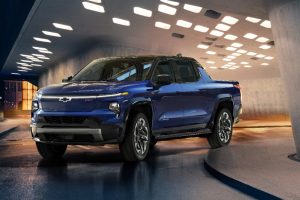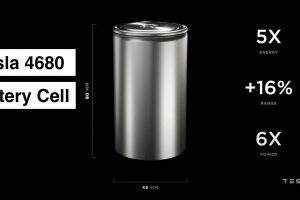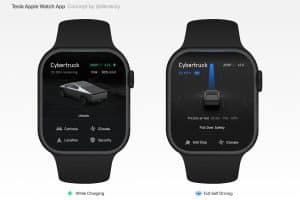- 🚌 The Flemish transport company De Lijn has approved an order for 92 electric buses from BYD Europe, aiming for completely emission-free public transport by 2035.
- 💰 The electric bus order represents an investment of more than 43 million euros, with the possibility of expanding to a total of 500 electric buses in the future.
- 🌍 De Lijn is a key player in Flanders, operating approximately 1,000 lines, 36,000 stops, and making around 11 million journeys annually with its fleet of 2,250 buses and 400 trams.
- 🚛 Hyundai’s $1.1 billion fuel cell facility in Guangzhou, China, is set to deliver 1,500 delivery vehicles, freezer trucks, road sweepers, and electric buses by the end of 2024.
- 🌐 The Guangdong Province aims to have 2,500 fuel cell vehicles on the road by 2025 and 10,000 in service by 2030, aligning with China’s national hydrogen strategy for 2021-2035.
- 🌱 The shift to electric buses and trucks is highlighted as a crucial step in reducing emissions from the transportation sector, emphasizing their environmental impact compared to traditional diesel engines.
In an era where environmental sustainability is at the forefront of global concerns, the transportation sector is witnessing a transformative shift towards cleaner alternatives. This blog post delves into the recent developments that showcase the pivotal role electric buses and fuel cell trucks are playing in reshaping the landscape of public transport.
Electrifying Flanders: De Lijn’s Bold Move
The Vision for Emission-Free Public Transport
Flemish transport giant, De Lijn, has taken a decisive step towards a greener future by green-lighting an order for 92 electric buses from BYD Europe. The ambitious objective? Achieving completely emission-free public transport by 2035.
Financial Commitment for a Sustainable Tomorrow
The approval comes with a hefty investment of over 43 million euros, signaling a strong financial commitment towards sustainable transportation. What makes this even more significant is the potential expansion of the order to a total of 500 electric buses, showcasing a dedication to a large-scale transition.
De Lijn’s Impact in Flanders
As a key player in Flanders, De Lijn operates an extensive network comprising approximately 1,000 lines, 36,000 stops, and facilitates around 11 million journeys annually. With a fleet of 2,250 buses and 400 trams, the company’s influence in the region is undeniable.
China’s Fuel Cell Future: Hyundai’s Game-Changing Facility
A Billion-Dollar Investment
Hyundai’s monumental $1.1 billion investment in a fuel cell manufacturing and technical center in Guangzhou, China, marks a significant milestone. The facility is not only a manufacturing hub but also a research and innovation center.
Delivering a Fleet for Guangdong Province
The government of Guangdong Province has signed an agreement with Hyundai HTWO Guangzhou to deliver 1,500 eco-friendly vehicles, including delivery vehicles, freezer trucks, road sweepers, and electric buses by the end of 2024. H2 Solution, a joint venture, has already made history by deploying 500 fuel cell vehicles in Guangzhou, representing the largest deployment of its kind in China.
Aligning with China’s Hydrogen Strategy
Guangdong Province’s commitment aligns seamlessly with China’s national hydrogen strategy for 2021-2035. The province aims to have 2,500 fuel cell vehicles on the road by 2025 and an impressive 10,000 in service by 2030, contributing significantly to the national target.
Environmental Impact: Beyond Diesel Engines
The Importance of Electric Buses and Trucks
The shift towards electric buses and fuel cell trucks is not merely a trend but a crucial strategy in combating emissions from the transportation sector. Unlike personal electric vehicles, buses and trucks operate for extended hours, making their environmental impact more substantial.
A Greener Tomorrow
As the world focuses on electric cars, it is imperative to recognize the true key to reducing emissions lies in replacing diesel engines. Electric buses and trucks present a compelling solution for heavy-duty vehicles, including mining equipment, airport vehicles, cement mixers, fire trucks, ambulances, and more.





